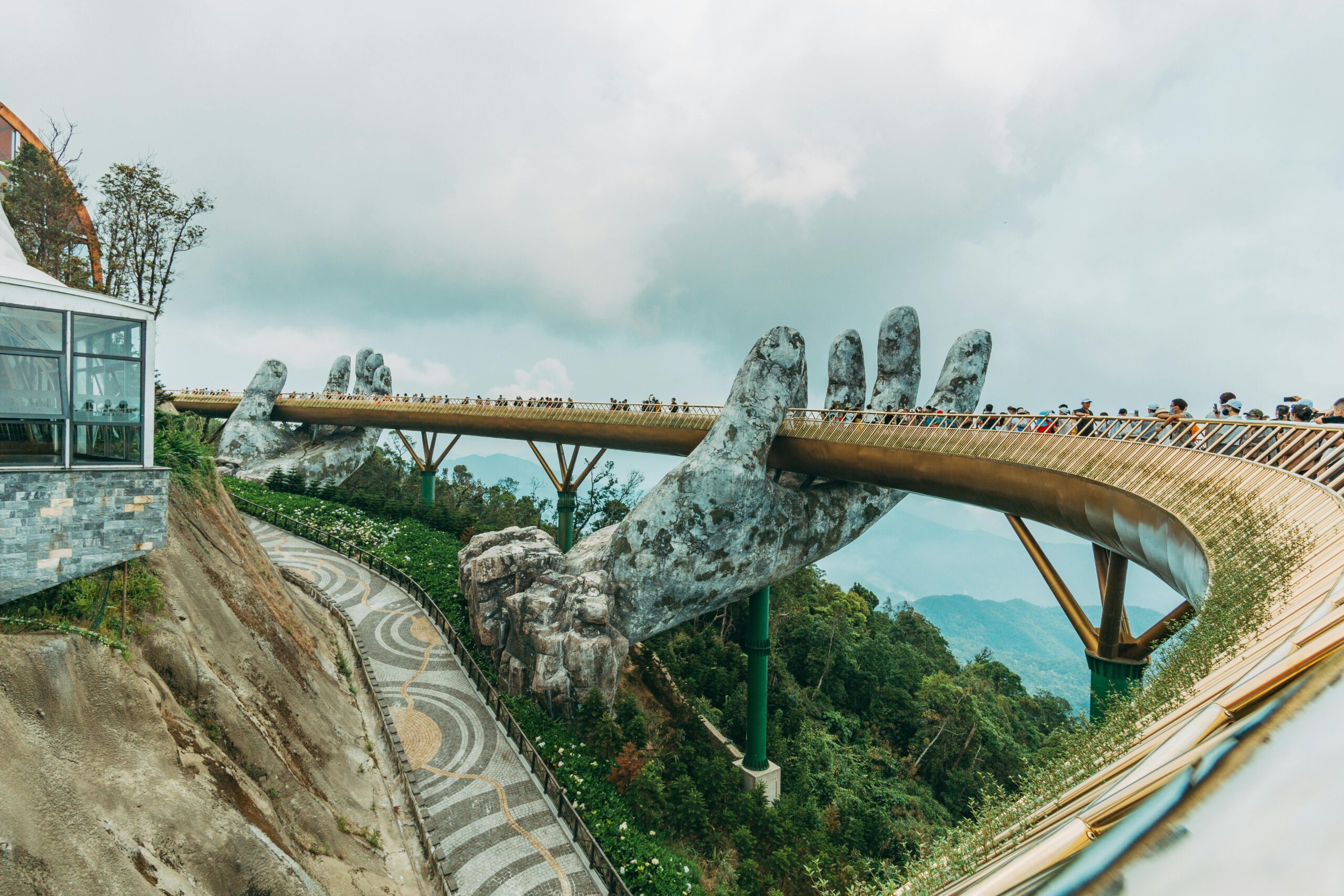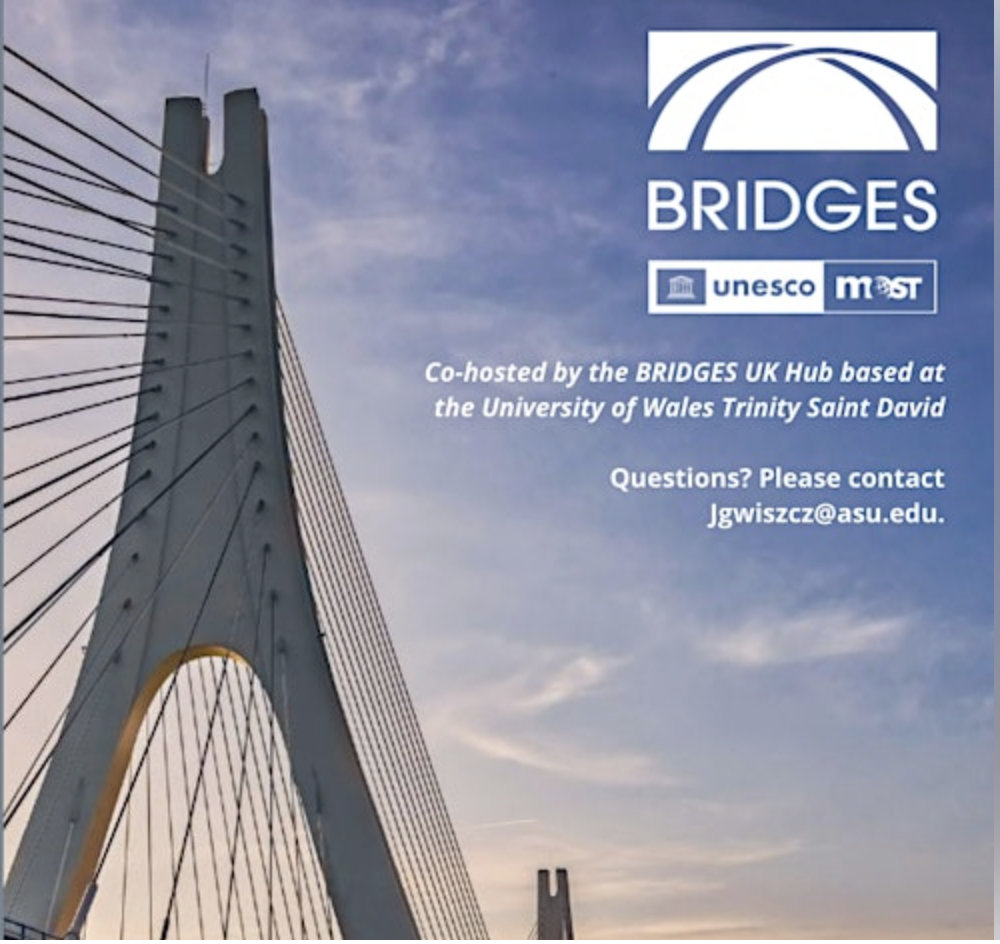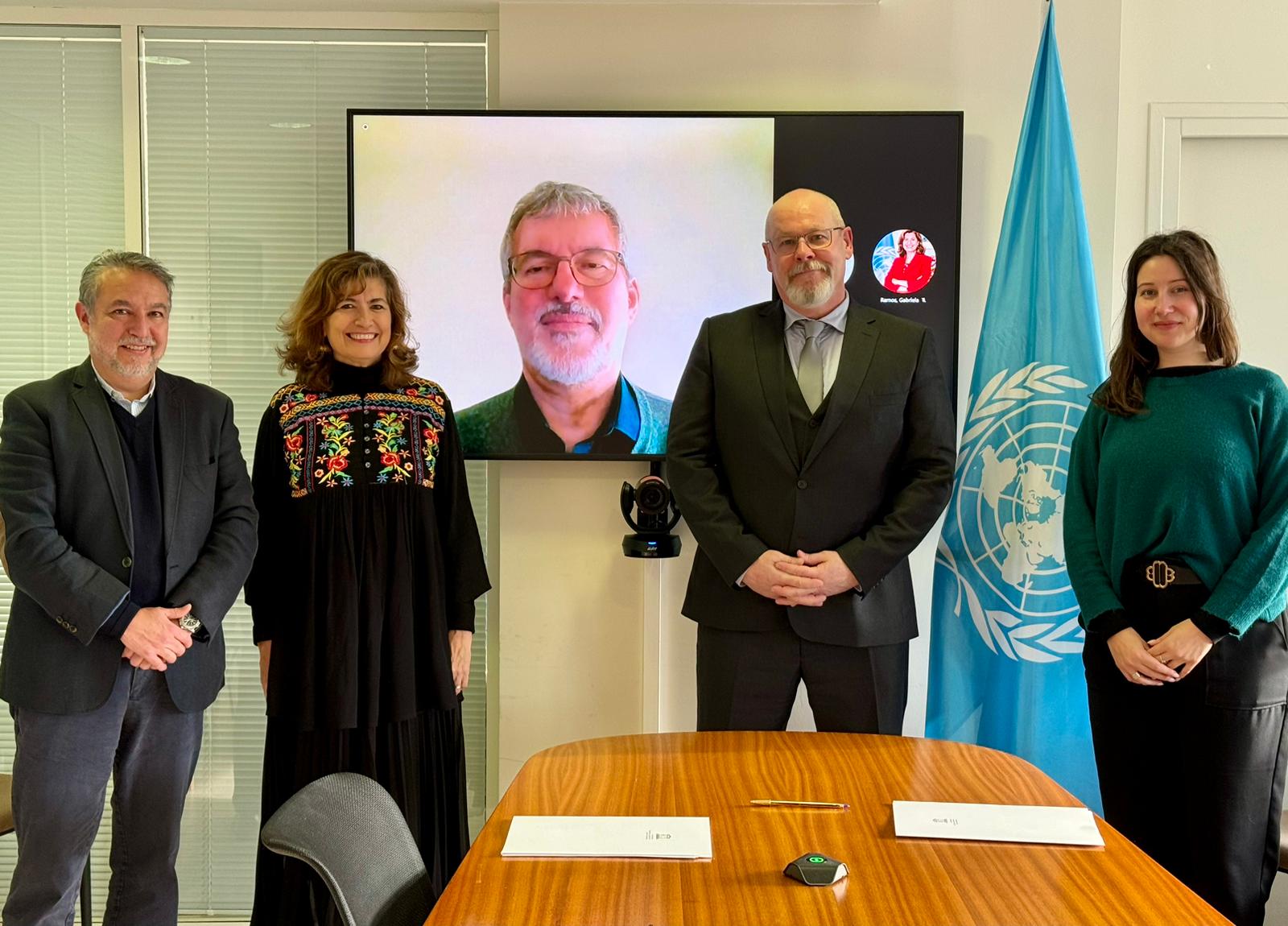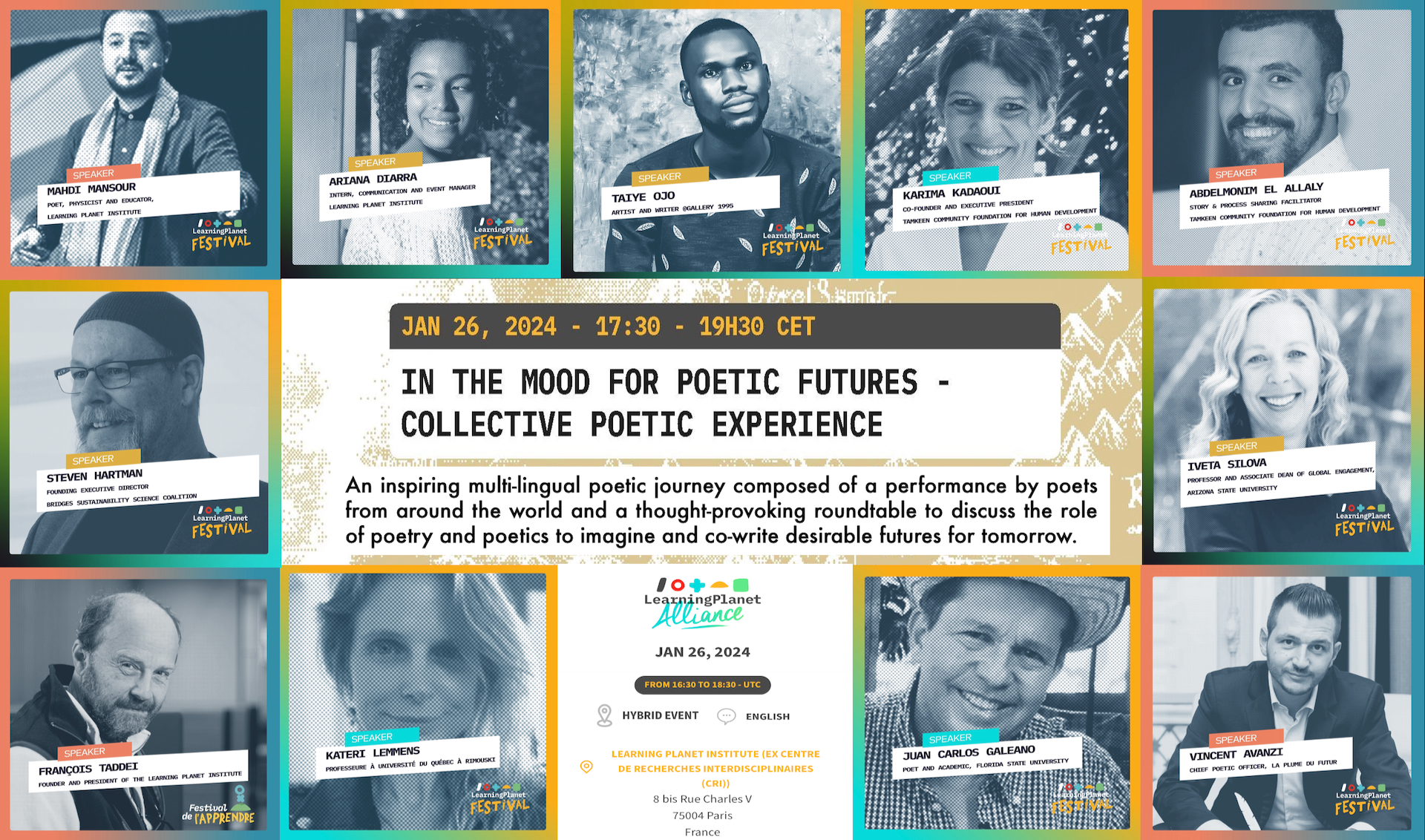How can humanities research contribute to creating a healthier planet? Sustainability and humanities scholars from ASU gathered at the Walton Center for Planetary Health to discuss this question and more during a roundtable event hosted as part of the 2023 Learning Planet Festival. The Learning Planet Festival had over 60,000 international attendees. More than 30 in-person and hybrid events were organized at ASU’s Tempe campus as part of the Festival.
Bernard Dionysius Geoghegan, media theorist and historian of science at King’s College London, visited Arizona State University’s Julie Ann Wrigley Global Futures Laboratory to participate in a series of Learning Planet events that focused on the role of the humanities within sustainability research. The culminating event of his visit was a panel discussion titled “What are the Human Sciences?” During the panel, Geoghegan sat down with representatives from the Global Futures Laboratory at ASU to discuss how the Laboratory is leveraging the humanities to lead the way to a healthier planet.
The group of panelists included several individuals from the network of more than 700 Global Futures Scientists and Scholars. Representatives from the Global Futures Laboratory at ASU included global futures scientist and director of the Center for Philosophical Technologies Adam Nocek, human sciences researchers Christopher Jones and Serena Ferrando, and postdoctoral fellow Carrie Karsgaard. The roundtable was moderated by Joni Adamson, President’s Professor of environmental humanities in the Department of English and director of the Environmental Humanities Initiative (EHI), and Lisa Yin Han, assistant professor of film and media studies and senior global futures scientist.
The group dove into the topic of the day, beginning with a discussion of how they each define the humanities.
Geoghan noted that the humanities, unlike research in STEM fields, aren’t quantifiable, so their findings can be undervalued by some fields. Geoghan explained that, although quantifying the humanities might seem like a solution to this issue, the unique strength of the humanities is that they “allow us to preserve what is not quantifiable.”
Panel member and post-doctoral fellow, Carrie Karsgaard, further explained the unquantifiable value of the humanities. “The humanities are helpful in thinking through how we want to move forward, how we want to respond to issues, and how we want to co-create with technologies in a way that is ethical and not exploitative.”
The humanities serve as an ethical guide for researchers and scientists in STEM fields, driving innovation and discovery through social, historical and cultural knowledge. Panel member, Adam Nocek, added, “I like to think about how we are opening up spaces within the sciences to recognize where the humanities contribute to scientific research.”
Despite the conscious effort made by humanists to make space for their research, the humanities are not always recognized as contributing meaningfully to the process of creating real-world solutions to issues of our time.
Panel member, Lisa Han, described the misperception of the role of humanists in sustainability research. “Often times, there is an assumption that humanists are here to make data emotional…or that humanists are here to translate science and make it palatable to the public,” said Han. “What all of us are saying is that this isn’t actually the role we see ourselves in. We see a place for ourselves and a place for the humanities in every step of the decision making process.”
Panel moderator, Joni Adamson, president’s professor of environmental humanities and Director of the BRIDGES Flagship Hub, emphasized that the Global Futures Laboratory has invited humanists and humanities research to play an important role in sustainability research by affiliating ASU scientists and scholars from a wide range of disciplines and giving them opportunities to engage in collaborative grant-funded projects.
“We’re organized to think across disciplines–to think about how we can collaborate better to meet the big challenges we’re facing as we accelerate towards 2030,” said Adamson, referring to the end of what the United Nations has called the “Decade of Action.”
By intentionally creating space for the humanities, the Global Futures Laboratory, and now the BRIDGES Flagship Hub, is closing the gap between the humanities and STEM disciplines, and recognizing the diverse knowledge systems beyond academia that are essential to developing solutions to the climate crisis.
The humanities-driven BRIDGES Lab at GFL and their diverse partners across ASU, including the roundtable event co-sponsors–Environmental Humanities Initiative, Regional Center for Expertise in Education, the Department of English’s Film and Media Studies Program, and the Center for Philosophical Technologies–are co-producing events that scale up the reach of the humanities in solving environmental issues both locally and internationally.
The humanities are not only relevant, but vital to scientists and scholars at the Global Futures Laboratory as they think about how human cultures and systems might be transformed in ways that help advance us toward a healthier planet and a future that provides the elements we will need to thrive.




